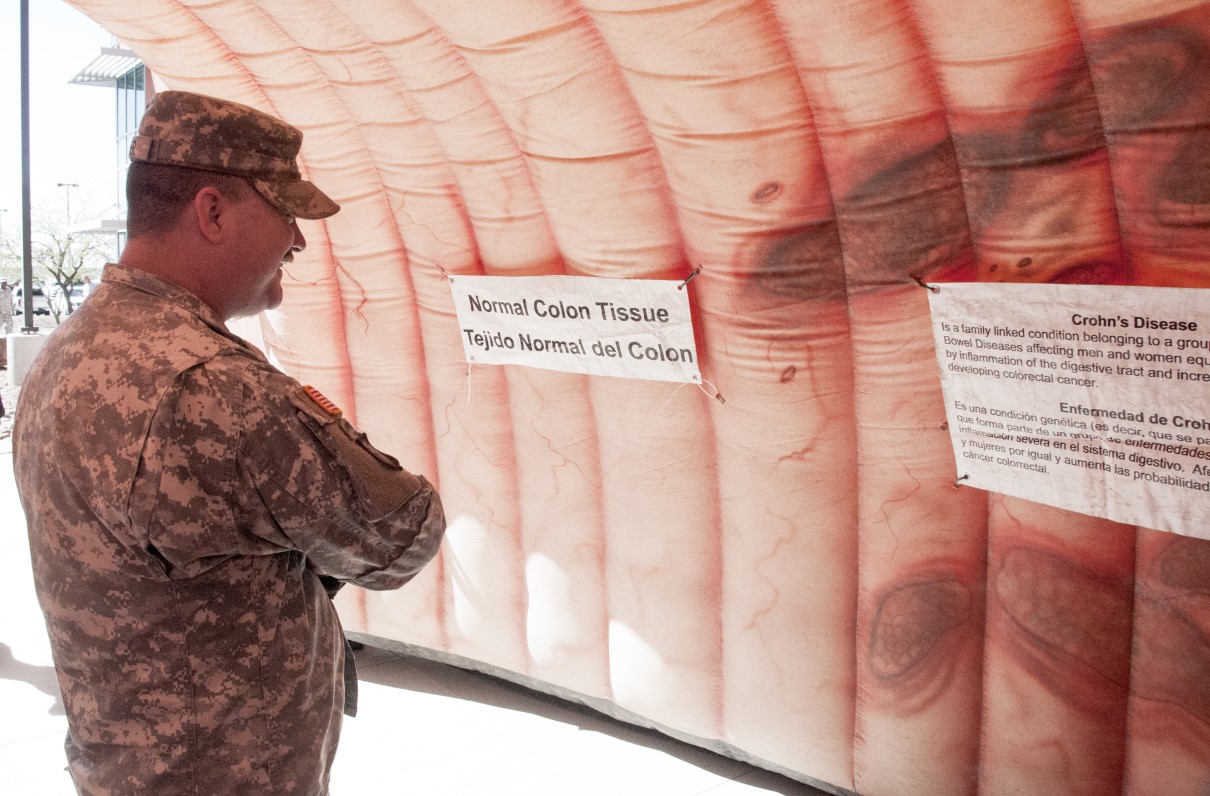Editor’s note: This article by Amanda Miller originally appeared on Military.com, a leading source of news for the military and veteran community.
Tricare beneficiaries at average risk for colorectal cancer can now receive covered screening exams and lab tests five years sooner, at age 45, following a recent coverage change.
The change in coverage comes as people younger than 50 are getting colon cancer more often, according to the American Cancer Society. The incidence of colorectal cancer in the U.S. rose steadily from 2011 to 2020 in people younger than 50, increasing at a rate of 2% per year. Cases of advanced colon cancer in patients under 50 grew even faster during that time, at about 3% per year.
The Defense Health Agency published the Tricare Policy Manual change April 30. Because professional associations no longer provide a definition of "increased or high risk" for colon cancer, Tricare is leaving the decision up to patients and their doctors whether earlier screenings, prior to age 45, are appropriate.
[UPDATED MONTHLY: MOAA's TRICARE Toolkit]
Despite the rise in colon cancer among younger Americans, overall cases have declined since 1985, which the American Cancer Society credited in part to more screenings.
However, that decline has flattened in recent years, it said, likely because screenings reached "saturation" while younger people's rates went up. By 2019, 20% of colon cancer cases were in people 54 years or younger, an increase from 11% in 1995.
Tricare considers patients to be "average risk" if they don't have:
- A history of colon cancer or "certain types of polyps" (growths on the inside lining of the colon)
- One first-degree relative (parents, siblings, children) or multiple second-degree relatives (grandparents, grandchildren, aunts, uncles, nieces, nephews) with colorectal cancer or certain polyps
- A history of inflammatory bowel disease
- A hereditary colorectal cancer syndrome such as familial adenomatous polyposis or Lynch syndrome
- A past radiation cancer treatment to the belly
- Symptoms or other signs of colon cancer
Tricare now covers the following tests and treatment exams for average-risk patients starting at age 45:
- Fecal occult blood testing every 12 months
- Fecal immunochemical testing every 12 months
- FDA-approved stool DNA tests (e.g. Cologuard) every one to three years
- Flexible sigmoidoscopy every five years
- Computed tomographic colonography every five years
- Conventional optical colonoscopy once every 10 years
- Flexible sigmoidoscopy with fecal immunochemical testing every 10 years
In addition to colon cancer screenings, Tricare covers screenings for:
- Cervical cancer starting at 21
- Breast cancer starting at 40
- Prostate cancer starting at 50
- Testicular cancer for ages 13-39
- Lung cancer for ages 50-80
- Oral, skin and thyroid cancer for those at increased risk.
Have More Questions About Your Health Care Benefit?
MOAA's TRICARE Guide answers some commonly asked questions.
